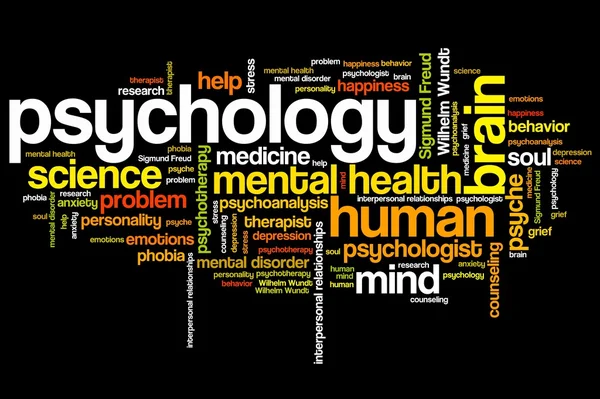Important Aspects of Personality Development
1. Emotional
Your emotions mold the way you want. They give elevation to your responses to circumstances, your personality qualities, key aspect your bond with others, your adjustment to change, your capability to manage stressful conditions, and many, many more. Acquiring your emotions, or key aspect your emotional intelligence offers you the path to learning more about yourself and others.
Your emotional intelligence is your ability to identify your feelings and utilize them to direct your reasoning and deeds. key aspect Emotional intelligence has been proven to be the trainer of success,key aspect in more methods than one. It develops leadership skills, social skills, and self-assisting skills. Emotional intelligence may even be a good sign of workplace victory than high IQ levels.
Emotional benefits tap into a customer’s personal values, aspirations, and desires.
They are the feelings customers experience, such as joy, security, or belonging, when using a product or service.
Emotional benefits can help a brand stand out from competitors by creating a unique and memorable experience.
Brand Loyalty:
When customers feel emotionally connected to a brand, they are more likely to become loyal customers.
A car brand like Volvo, known for its safety features, may evoke a feeling of security in its drivers.
A luxury car brand like BMW might trigger feelings of excitement and a sense of status in its owners. Nostalgia and comfort:
A brand like Sun-Maid raisins might evoke feelings of nostalgia and comfort by reminding people of childhood.
Belonging and identity:
Brands can help people feel like they belong to a certain group or community, such as Apple users feeling like they are part of a cool and innovative group. Confidence and self-esteem:
A clothing brand might make someone feel confident and desirable.
Important:
Stronger Brand Identity:
Emotional benefits contribute to a stronger brand identity and make the brand more memorable.
They enhance the overall customer experience and create a positive association with the brand.
By creating an emotional connection, brands can foster customer loyalty and advocacy.
2. Physical
The physical key aspect of personality development is associated with your physical well-being. It involves eating the proper nutritious foods, working out to sustain a healthy body, getting sufficient sleep, and handling stress.
We realize very well how essential physical health is. It keeps away disease, aids maintain a healthy body weight, and makes you feel better. Still, we hardly concentrate on the other means by which physical fitness impacts us.
Being healthy is nice for so much more than simply your body. When you are consuming right, working out regularly, and taking care of your general well-being, you have much mental transparency and energy to steer through daily duties. It keeps you joyful and confident, which interprets into execution in other areas of your life, for example, work, parenting, and social relationships

Improved cardiovascular health : Physical activity strengthens the heart and improves blood circulation, lowering blood pressure and cholesterol levels.
Stronger bones and muscles : Exercise, particularly weight-bearing activities, increases bone density and muscle mass, reducing the risk of osteoporosis and improving overall strength and mobility.
Weight management : Physical activity helps burn calories and maintain a healthy weight, reducing the risk of obesity and related health problems.
3. Spiritual
Spirituality is an important factor in the personality development puzzle. It is a way of looking for purpose and associating with yourself as well as with the people around you. It is significant to mark that spiritualism can be diverse for everybody. It may be belief, prayer, meditation, or even taking a walk with nature.
Spiritual awareness facilitates the fulfillment of a range of various human purposes. It encourages kindness, positive relationships, a feeling of purpose, honesty, optimism, and internal peace. These qualities make up a vital part of victory and happiness.

Spiritual practices like meditation and mindfulness can lower stress hormone levels and promote relaxation, helping to manage anxiety and improve overall mental well-being.
Increased Self-Awareness:
Connecting with one’s inner self through spiritual practices can lead to a deeper understanding of personal values, beliefs, and motivations, fostering self-acceptance and personal growth.
Spirituality can help individuals find meaning and purpose in life, providing a sense of direction and motivation.
Developing a spiritual practice can enhance emotional resilience, allowing individuals to better manage difficult emotions and navigate challenging situations.
Spirituality can help individuals accept themselves, others, and life’s circumstances, fostering a sense of peace and contentment.
Spiritual practices often emphasize compassion and understanding, leading to stronger and more meaningful relationships with others.
Spirituality can foster a sense of connection to something larger than oneself, which can extend to a feeling of interconnectedness with all living beings.
Being part of a spiritual community can provide a sense of belonging and support, strengthening social bonds and reducing feelings of isolation.
Studies have shown that spiritual practices like prayer and meditation can help lower blood pressure, potentially reducing the risk of heart disease.
Stress reduction through spirituality can positively impact the immune system, potentially leading to better overall health.
Spiritual practices can promote relaxation and reduce stress, which can lead to improved sleep quality.
A deeper connection with oneself and the world can unlock creativity and enhance intuitive abilities.
By fostering self-awareness, emotional regulation, and a sense of purpose, spirituality can lead to a more profound sense of inner peace and contentment.
Spirituality can help individuals find a deeper sense of meaning and purpose in life, leading to a more fulfilling and authentic existence.
4. Psychological
It is effortless to describe a certain picture of yourself to others. With the help of social networks or even in-person contacts, people notice you from the exterior. Your external image is generally much more distinct from what is on the interior.The psychological aspect of personality development links up to understanding your real inner self. It helps self-confidence and self-acceptance. Your relationship with yourself is perhaps the most critical driver of success. Eventually, if you do not have faith in your abilities, who will have them? Self-belief generates optimism, energy, motivation, and in the end, success

Psychology helps individuals gain insight into their own thoughts, feelings, and behaviors, as well as the motivations behind them. This self-awareness can lead to personal growth, better decision-making, and improved relationships.
Psychology emphasizes the importance of critical thinking, which involves analyzing information objectively, evaluating evidence, and forming logical conclusions. These skills are crucial for navigating complex situations and making informed decisions in various aspects of life.
Psychology offers valuable insights into mental health and well-being, providing tools to manage stress, anxiety, and other challenges. Understanding psychological principles can empower individuals to develop coping mechanisms, build resilience, and cultivate a positive mindset.
Psychology provides a strong foundation for a wide range of careers, including clinical psychology, counseling, research, human resources, marketing, and more. The skills gained through studying psychology are highly valued in various industries, offering diverse career paths and opportunities for advancement.
Psychology provides a framework for understanding human behavior, motivations, and emotions. This knowledge can be applied to various contexts, from understanding customer behavior in marketing to improving communication in personal relationships.
Psychology recognizes the diversity of human behavior across cultures and contexts. This understanding can foster greater cultural sensitivity and appreciation for different perspectives.
5. Social
Nearly everything we do in life comprises interacting with others. It is convincing that we recognize how to build and maintain good relationships, in addition to how to appropriately act in different social settings. For instance, the way you converse with your superiors/heads at work will be much different from the way you mingle with your friends.To be successful, as an example try facing different social circumstances to analyze yourself.

These are the benefits directly received by the individual or entity engaging in the activity. For example, a student attending university gains private benefits such as increased knowledge, better job prospects, and higher future earnings.
External Benefits (Positive Externalities):
These are the positive impacts that an economic activity has on third parties not involved in the transaction. For example, a more educated population can lead to a more skilled workforce, lower crime rates, and increased tax revenues, all of which benefit society as a whole.
This is the sum of private benefits and external benefits.
Education, public transportation, healthcare, and environmental protection are often cited as examples of activities with significant social benefits.
When social benefits exceed private benefits, goods or services tend to be underconsumed, which may justify government intervention through subsidies or public provision to encourage greater consumption.

